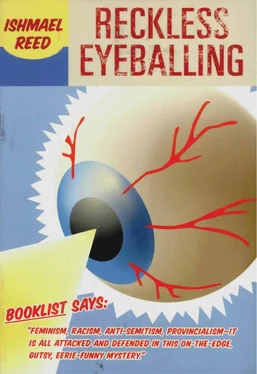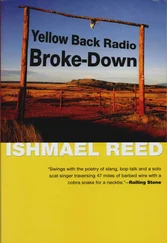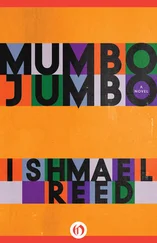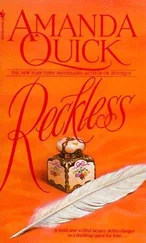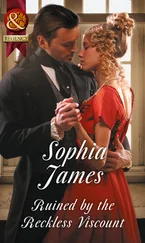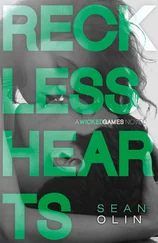“Please, dear, we’ll talk about it, try to keep still.”
He looked at Sean. “I’m sorry about that…tell me about this guy James T. Farrell, you say he could write, huh.”
“The best. He wrote a novel about an Irish-American guy named Studs Lonigan. A real loser.”
“Kind of like me, huh. Studs Lonigan.”
“No, Dad. Studs was a victim of change.”
“The insurance is all paid,” O’Reedy said, interrupting his son and turning to his wife. “It’s in the chest I keep in the closet, it…” A sharp pain hit O’Reedy in the abdomen. He groaned. He could hear the ambulance in the distance.
“Sean, you’re right…I was their errand boy — I didn’t have nothin’ against niggers and Puerto Ricans. Those were evil men, Sean. It’s not the old days…. If we don’t stop them, Sean…They’re having babies. Sean, you don’t understand. You have to see some of the stuff I’ve seen, Sean, I’m right there at the front lines and it ain’t pretty — maybe that black guy who was running…Sean, sometimes you can’t tell them apart, just a lot of faces staring at you, hating you…. Sean, we’re doing this for you, we’re in the trenches, you’ll see.” O’Reedy looked up. He saw clouds, the bottom of the feet and the skirts of the people in the mural, flying, heading toward the sky like the murals in churches overseas, ascending, like the cathedral at Köln looming over the city like some kind of regal but ragged, nasty and dirty pigeon, flying. But a figure was heading toward him. It was O’Reedy, the black jogger who had the same name as his; he was coming back, and he hovered above the people standing around O’Reedy, his wings connected to the black and red jogging suit, and O’Reedy lifted himself and touched the jogger’s outstretched finger with his.
He was a passenger in one of those Air France hot rods and they were rattling into New Oyo, about two hours from leaving St. Thomas in the Bahamas. When they landed he saw from the plane’s window a huge banner in front of the building that housed the control tower. “Ian Ball, Welcome Home, Our Own,” written in the language of the island. The other passengers stared at him as he walked down the steps of the plane. A small brass band was there to welcome him. They played the New Oyo anthem. They were dressed in white uniforms with gold trimmings. His fellow passengers had to go through customs to have their passports checked and their luggage searched. Two officers from the government introduced themselves and escorted him through customs and toward the car the president of New Oyo had sent. Later he learned that his mother had requested this greeting from the president of New Oyo, who was one of her best customers. He believed in soothsaying and the other services his mother provided to well-placed people. The president always credited his mother with having saved his life after she had warned him of an assassination plot against him.
He and the escorts headed toward the outside of the airport; they were carrying his bags. There was a disturbance. He wheeled to the source of the loud, drunken singing. His escorts froze. There were some Americans, Club Med types who were doing a conga line at the ticket counter as they checked in for the trip back to the States. They were wearing shorts and had the usual obnoxious, know-it-all attitude one associates with American travelers. They were singing the tune to “God Bless America,” but without the usual lines: “No more roosters/crowing all night/no more cockroaches/in the bread. God Bless America/all the mosquitoes there are dead/God Bless America, I’m going home, to bed.”
He and his escorts exited through the doors. He saw vending machines containing the nation’s newspapers. His face was on their covers. One headline said: I. BALL TO BROADWAY. Some people driving by in their Fiats and B.M.W.s and Mercedes honked. News traveled fast down here.
He’d picked up the reviews of the play at J.F.K. and read them on the plane. The sex list with his name crossed out must have made the rounds, because the feminist critic for the New York Exegesis , the big paper, had given it a rave review. She called it “riveting,” “brilliant,” and one of the most “memorable” plays of the season. He received only two paragraphs less than Eva’s Honeymoon in the Downtown Mandarin . Near the bottom of the second page was a head that read: SHOBOATER’S VIEW. His review was carried way in the back. Page sixty-eight.
“ Reckless Eyeballing is marred by flat characters, but that’s not the worst offense that Ian Ball has committed in this piece of rubbish. Mr. Ball has a way of talking out of both sides of his mouth, as though he were of two heads or of two minds. When misogyny was in, he wrote Suzanna , the play about the sugar cane worker who regularly took the cutters into the fields in order to pay her gambling debts and buy rum. Although the women were outraged by this slut, at least Ball knew what he was writing about. Reckless Eyeballing is an obvious attempt to distance himself from the misogynistic attitudes that have ruined the work of some of his contemporaries. It’s all things for all women. He gives the black women the good debating points; he gives the white women the victory by having the all-female jury (the only male character in the entire play is Ham Hill’s skeleton) return a verdict against the corpse, Ham Hill, who was lynched twenty years before for allegedly gazing too long at Cora Mae, a white woman. Ball even lets the corpse off by having the judge sentence him to death already served. If Ian Ball was as good a playwright as he is a cunning opportunist, and a flexible equivocating and ambitious knave, maybe he would deserve the overpraise that this play is bound to receive.”
He ignored the review by Paul Shoboater, and doubted whether many readers would accept his view, that is, if they could locate it in the newspaper. What counted was the review he’d received from the feminist critic on the front page. A letter from Tremonisha had arrived, just as he was leaving his apartment for the airport.
“Dear Ian,” it began. “Greetings from Yuba City, California. I was looking for the worst town in the United States. This is it. I’m sorry I left you stranded, Ian, but I think that if I had remained in New York, I would have lost my mind. I just couldn’t be a party to what Becky did to your play. She reminds me of “that woman in Hampstead,” you know, that conniving spidery creature in Paula Marshall’s novel. Attempting to control those around her by dangling the golden apple of artistic success. Did I ever tell you that I saw Johnnie Kranshaw a couple of weeks before she disappeared? She had been up for a week and had so much coke in a bowl that I mistook it for sugar and started to put it into my coffee. She was haggard and smelly. She looked eighty years old. Becky had sucked her insides out. I’ve gotten three thousand miles between me and that whole New York scene and I don’t miss a thing.
“Dred Creme is with me. He’s been off junk for about five weeks now. Next I’m going to get him to work on those other bad habits of his. Sucking his thumb and holding this blanket next to his head all the time. He’s practicing his scales. He says that he knew he was playing bullshit and drowning in clichés in New York. He’s listening to Jelly Roll Morton and says he wishes that he’d heard of him and King Oliver when he was in his late thirties.
“The sun is doing wonders for him. We’re happy and we’re thinking about getting married and raising some kids. New York was no place to raise kids. Anyway, remember that night I just about talked your ears off about the Jew in Jud Süss? I’ve been thinking a lot lately of what happened in one scene. You see, this Jew gets rid of his caftan and his beard, and shows up at this party, see, and he thinks that because he has the Amadeus look, that the Germans will accept him; but no, a blond stereotype of the heroic German says, pointing to him, ‘You a Jew ain’t you.’ And so maybe that’s what’s happened to me. I thought that by getting rid of the caftan and beard of my experience, the people I admired would accept me. As a result, I became something I’m not.
Читать дальше
